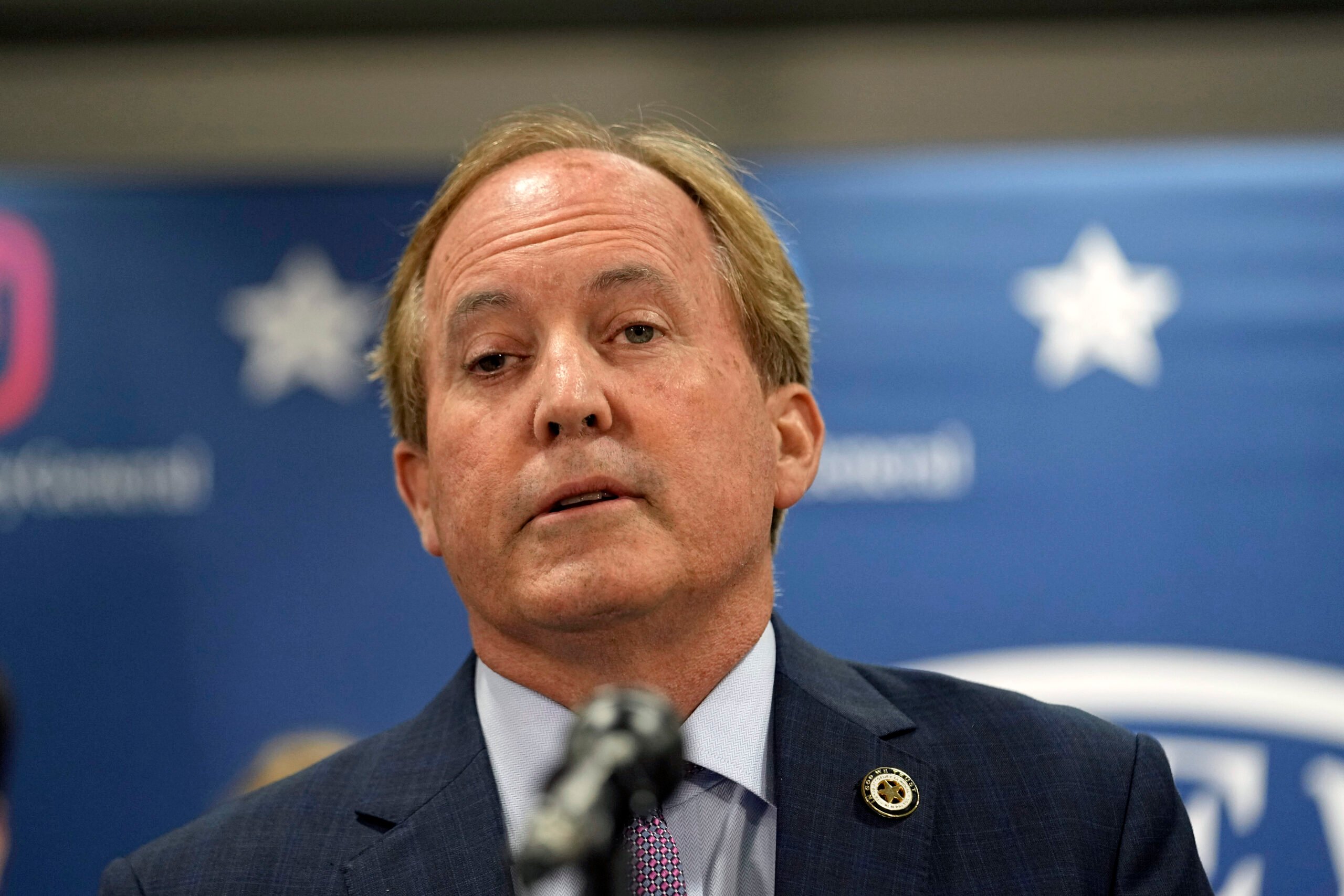
A Hint of What’s to Come in the Ken Paxton Grand Jury
Founder of SEC-probed company linked to Paxton appears at Collin County courthouse

Above: Ken Paxton, after being sworn in, stands among Texas GOP VIP's: From left to right, Governor-elect Greg Abbott, Senator Ted Cruz, Lt. Gov. David Dewhurst, Justice Don Willett, and Governor Rick Perry.
Is this the beginning of the end for Attorney General Ken Paxton? Today’s confirmation by Dallas local news station WFAA that a grand jury was meeting at the Collin County Courthouse to hear evidence related to Paxton’s alleged violations of securities law marks a milestone in his legal troubles. The development has been anticipated by Paxton-watchers for nearly a year and a half, ever since Paxton admitted in writing to violating the state securities code by failing to disclose that he was being paid to route his legal clients into the hands of an investment manager with a troubled track record.
It’s unclear whether this was the first day the jury heard the Paxton case, or how long they’ll continue to meet. But the stakes are high for Paxton. Special prosecutors Brian Wice and Kent Schaffer recently won an order expanding their case from already-disclosed improprieties to a first-degree felony case. That means the amount of money involved exceeds $100,000, and it makes the episode that Paxton already disclosed look like peanuts.
There’s been a good deal of speculation among Paxton-watchers about what the expanded case could entail, and today, we got a clue.
William Mapp, the disgraced founder of Servergy, Inc., was identified at the courthouse by WFAA reporter Tanya Eiserer. Servergy, based in McKinney, claimed to produce energy-efficient servers for corporate clients. The company made extraordinary claims about its core product, the Cleantech-1000, claiming it consumed “80% less power, cooling, and space in comparison to other servers currently available.” But there was a problem: The federal Securities and Exchange Commission (SEC) alleges that Servergy’s claims about its product were false. And the company, the SEC says, produced fraudulent pre-orders from tech companies like Amazon and Freescale to sell itself to investors.

Servergy raised some $26 million from selling stock between 2009 and 2013, as detailed by information released by the SEC. And it profited from grants from the McKinney Economic Development Corporation (MEDC), a local fund that reinvests money collected by local sales taxes. Servergy continued to receive money from MEDC even after a formal SEC investigation began in 2013. Servergy is also connected to a wide variety of other improprieties and shady activities.
Paxton was a prominent Servergy shareholder, owning at least 10,000 shares. But while other investors simply lost their shirts, Paxton’s role in the Servergy case has generated lingering interest from authorities. In 2014, Paxton’s name was included in a list of search terms used by the SEC to subpoena the company, along with several other prominent figures in McKinney. Mapp’s presence at the courthouse today suggests that Servergy’s case is connected to evidence special prosecutors are presenting against Paxton.
That would be a significant escalation in the case against the state’s AG. A large part of the public defense laid out by Paxton’s spokesman Anthony Holm revolves around the assertion that Paxton’s original violation of securities law, regarding his legal clients, was a simple mistake and civil matter that he corrected when it was brought to his attention. The Servergy episode is a whole different kettle of fish, and while it remains to be seen what the prosecutors have against Paxton in connection to this particular episode, it should be a source of significant concern in the AG’s office.


